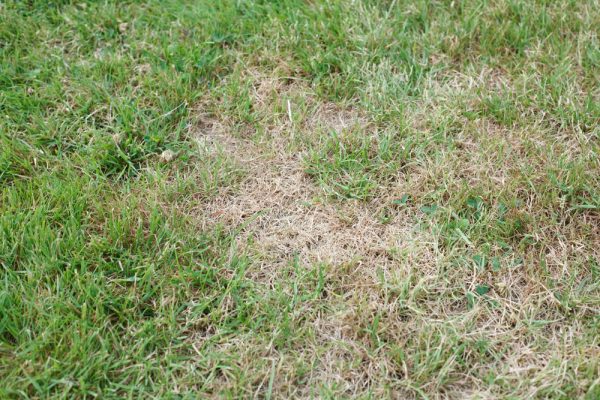
Reviving a dead lawn can seem like a daunting task, but with the right knowledge and approach, you can turn things around. Whether it’s due to neglect, extreme weather conditions, or other factors, there are steps you can take to bring your lawn back to life and achieve the lush, green oasis you desire.
Diagnose Before You Prescribe
A proper diagnosis will keep you from throwing good money after bad. Great doctors perform a thorough diagnosis before they prescribe treatment. The goal with your lawn is to treat the illness causing the symptoms. Grass can die from things like:
- Pet Urine
- Worms and Insects
- Neglect
- Excessive Fertilizing and Pesticides
- Excessive Watering
- Compacted Soil
- Thatching or Clogging
- Improper Mowing
- Fungus
- Chemical Spills
Observation is key! Lawns are ecosystems. So if your lawn has died, it’s likely the root cause is a combination of things affecting the air, water, sun, and nutrients the grass needs. Deficiencies in your grass ecosystem will put the grass under stress and make it susceptible to damage.
So what do you see? Except for dormancy, has your grass changed colors? Does it pull up easily? When you dig below the surface, are there Grub worms? Is there a pattern? And what have you done differently, or neglected doing, that might have affected the health of your grass?
All symptoms lead to bigger issues that can be resolved with proper treatment. Changes in grass color often indicate fungal diseases. Dead patches in yards with pets are commonly seen where the pet urine is concentrated. If your lawn is being overrun with weeds, something is compromising the amount of air, water, and nutrients your grass is not getting. High traffic areas put grass in the stress zone because the soil underneath gets compacted, preventing the flow of elements to the root system.
Care and Maintenance
Here are some actions you can take to help your grass:
- Aerate the soil-high traffic areas compact the soil – Aeration opens the solid back up to allow air, water and nutrients to reach the roots of your lawn.
- Treat insects and Grub Worms – Your lawn is an ecosystem, and some insects and earthworms are beneficial. Grub worms for example are bad.
- Pet Urine – Water moderately to help dilute the concentration of urine in the area.
- Mow and Water Properly – Different grass species need different levels of water and growth height for health. Too little or too much of either will stress and compromise your lawn.
Caring for your grass requires some knowledge. For example, Bermuda grass is a warm-season grass that thrives in hot climates and requires frequent watering and mowing to maintain a healthy growth height of about 1.5-2 inches. On the other hand, Kentucky bluegrass is a cool-season grass that prefers cooler temperatures and needs less water and mowing, with an optimal growth height of around 2.5-3.5 inches. Understanding the specific requirements of your grass species is crucial for providing the right care and maintenance to keep your lawn healthy.
Sustainable Practices for a Healthy Lawn
In addition to proper mowing, watering, and pest control, incorporating sustainable practices into your lawn care routine can have long-term benefits for both your lawn and the environment. Consider implementing practices such as composting grass clippings, using organic fertilizers, and practicing water conservation techniques like rainwater harvesting. These sustainable practices not only promote a healthier lawn but also contribute to a greener and more sustainable future.
Why Pay for Professional Lawn Care?
At this point in your research, you begin to understand how much time and effort bringing your lawn back to life can take. Time for research, tools, nutrients and treatments, and then labor.
Here is where a consultation with lawn care experts will save you time, hassle, and money.
Chris James lawn care services provides professional expert care for your lawn from the soil up. We know grass. We properly diagnose and treat your dead lawn in less time and with more options available to you. Want an organic solution for your lawn care, just ask!
Your benefit is our extensive lawn care expertise. Keeping your hands clean isn’t a bad thing either. Our lawn care programs are an investment in your home and lifestyle, and are more affordable than you think. We have seen and done it all in lawn care and have the customer testimonials to show for it.
Call Us Today
Call our team today to schedule a consultation and take the first step towards a healthier, greener lawn. With our expertise in lawn care and landscaping services, we can transform your lawn into a vibrant and thriving oasis. Don’t wait any longer – contact Chris James Landscaping in Bergen County, NJ, and let us take care of your lawn so you can enjoy more time and peace of mind.
